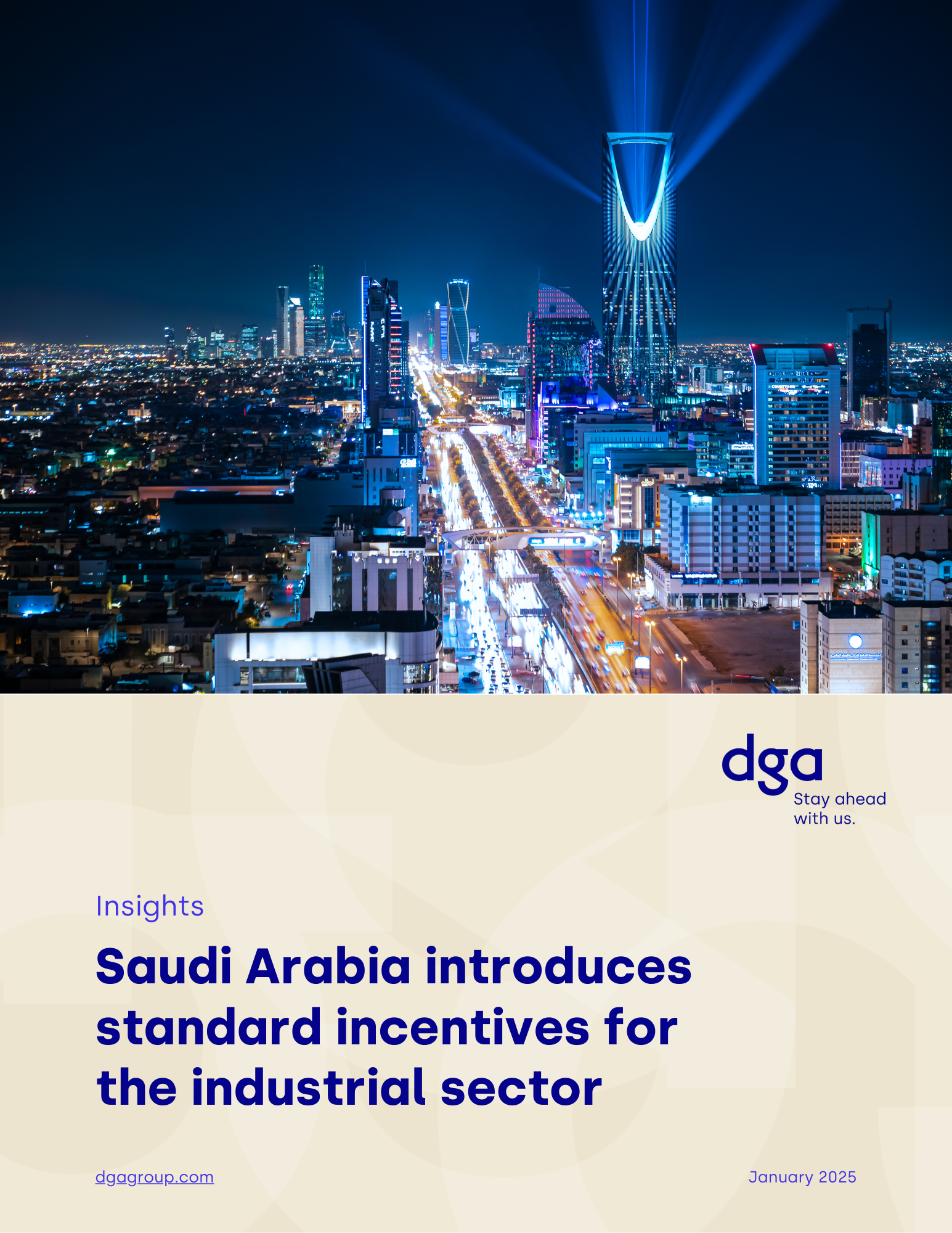Saudi Arabia introduces standard incentives for the industrial sector

Incentives in the Kingdom
Role of incentives
Offering incentives has become a key tool in Saudi Arabia’s push to become a global business hub and diversify its economy. The Kingdom sees incentives as a means to quickly attract quality investments.
Over the last two years, the government has formalized its incentive schemes through several key initiatives, including establishing several Special Economic Zones (SEZs) and relevant regulatory bodies (see our previous analysis here); introducing a National Incentives Committee (NIC) to oversee financial and non-financial incentives for investment projects within and outside the Kingdom (see our previous analysis here); and enacting a new investment law (see our previous analysis here) with accompanying implementing regulations that, for the first time, institutionalize the concept of incentives beyond the low- or no-interest loans that the Kingdom has offered for decades.
Sector-specific incentives
Saudi Arabia is now rolling out sector-specific incentives to bolster particularly strategic industries like tourism, mining, and industrials.
In January, the government unveiled standard incentives for the industrial sector designed to encourage local manufacturing and reduce reliance on imports by strengthening national capabilities. The government committed SAR 10 billion (USD 2.6 billion) to eligible projects, including those in the automotive, downstream chemicals, or machinery and equipment sectors that will localize production. Incentives could cover up to 35 percent of initial capital investment with a maximum of SAR 50 million (USD 13.3 million) per project, among other benefits.
While the industrial sector is the first to see standard incentives, we expect others to follow suit, especially in light of other government-wide efforts to empower sector regulators and achieve sector-specific Vision 2030 goals.
Considerations for companies
First movers are rewarded. If past is precedent, companies that engage with new policies proactively and enthusiastically are often met with increased flexibility and support from the government, including the benefit of helping to shape the policy.
Engage with sector regulators. Engaging with relevant sector regulators will ensure that companies better understand available incentives, stay abreast of potential new incentives, and better navigate existing offerings.
Monitor incentives programs. We expect the government to introduce additional sector-specific incentives soon, creating new opportunities. Companies should also consider the broader incentives and localization landscape to stay ahead.
About DGA Group
DGA Group is a global advisory firm that helps clients protect – and grow – what they have built in today’s complex business environment. We understand the challenges and opportunities in an increasingly regulated and interconnected world. Leveraging the expertise and experience of our team at Albright Stonebridge Group, a leader in global strategy and commercial diplomacy, and a deep bench of communications, public affairs, government relations and business intelligence consultants, we help clients navigate and shape global policy, reputational and financial issues. To learn more, visit dgagroup.com.
For additional information or to arrange a follow-up, please contact Imad.AlAbdulqader@dgagroup.com and Juliana.Rordorf@dgagroup.com.